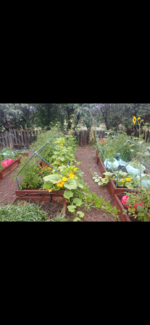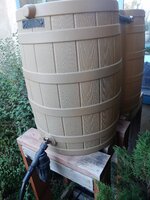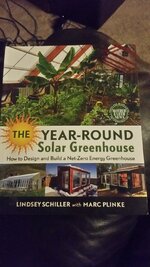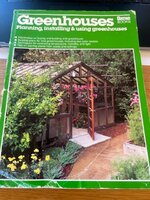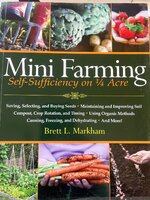SoloWilderness
WKR
For those who grow their own food in addition to hunting for their protein:
I'm interested in seeing what people are doing in higher altitude, and harsher climate conditions in particular. We are in the process of building a large permanent greenhouse for season extending here at 8000' in Colorado. Going to be experimenting with automation and automatic temperature control with venting and propane heat supplementation. Structure will be double wall 8mm polycarbonate, with a second interior layer added once we see how a single layer retains heat in the winter. Going to be using a residential quality door and windows salvaged from a relatives house to ensure a weathertight structure.
Interior will be sealed from the exterior at ground level as well and dug into the ground for additional thermal mass. Utilizing raised beds salvaged from industrial pallet wood, which is where all the framing came from as well (milled square and treated). Rodent and insect screen under the floor, with crushed gravel flooring and a small woodstove eventually.
Growing method will be organic, in soil, with automatic watering, and applications of organic teas on a feeding schedule. Rainwater collection will hopefully supplement the water, which will be gravity fed with pump assist as required from rain barrels located uphill from the structure.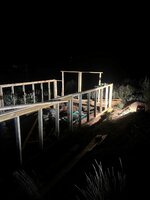
I'm interested in seeing what people are doing in higher altitude, and harsher climate conditions in particular. We are in the process of building a large permanent greenhouse for season extending here at 8000' in Colorado. Going to be experimenting with automation and automatic temperature control with venting and propane heat supplementation. Structure will be double wall 8mm polycarbonate, with a second interior layer added once we see how a single layer retains heat in the winter. Going to be using a residential quality door and windows salvaged from a relatives house to ensure a weathertight structure.
Interior will be sealed from the exterior at ground level as well and dug into the ground for additional thermal mass. Utilizing raised beds salvaged from industrial pallet wood, which is where all the framing came from as well (milled square and treated). Rodent and insect screen under the floor, with crushed gravel flooring and a small woodstove eventually.
Growing method will be organic, in soil, with automatic watering, and applications of organic teas on a feeding schedule. Rainwater collection will hopefully supplement the water, which will be gravity fed with pump assist as required from rain barrels located uphill from the structure.

Last edited:

